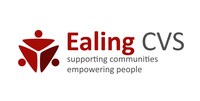Healthy Eating
A diet high in fruit and vegetables and low in fat, salt and sugar has been shown to reduce the risk of certain illnesses such as heart disease, stroke and obesity. Government scientific advice is for people to eat at least five portions of fruit and vegetables per day, to minimise consumption of processed meat and to keep salt consumption to six grams or less per day.
5 a day
The 5 A DAY message highlights the health benefits of eating five 80g portions of fruit and vegetables every day. That's five portions of fruit and veg in total, not five portions of each. 5 A DAY is based on advice from the World Health Organization, which recommends eating a minimum of 400g of fruit and vegetables a day to lower the risk of serious health problems, such as heart disease, stroke, type 2 diabetes and obesity. Only 24% of men and 29% of women are regularly consuming their recommended daily five portions of fresh fruit and vegetables. For more information click here.
Processed Meat
There is evidence that eating a lot of red or processed meat increases the risk of bowel cancer. In February 2011, the Department of Health published guidelines recommending that people do not eat more than 70g (2.5 ounces) a day. For more information click here.
Salt Consumption
Many people in the UK eat too much salt which can lead to high blood pressure, currently affecting around one third of adults in Britain. High blood pressure increases the risk of health problems such as heart disease and stroke. Adults are recommended to eat no more than 6g of salt a day but this is difficult to achieve when 75% of the salt we eat is already in everyday foods such as bread, breakfast cereal and ready meals. For more information click here
Change4life are currently promoting Smart Swaps
The campaign urges people and families to make simple foods swaps such as switching to diet drinks. Lots of resources, info and support. Sign up and get loads of great free stuff like handy Smart Swapper, fun fridge magnets, mobile app and money-off shopping vouchers. For more information click here
Eating Well
in the Early Years
Encouraging children to eat healthy when first
introducing solids is an important consideration. Lots of parents use
conveniently pre-packed food pouches and jars but are they really the best
option?
First Steps Nutrition
is
an independent charity that provides information and resources to support
eating well from pre-conception to five years.
Their website has information on eating well in pregnancy, advice for
new mums and their infants and on children eating well in their early years.
There are guides to download, and reviews on subjects such as commercially
produced baby foods. To connect to their website click here
Did you know that commercially produced baby food can contain not only lots of sugars, but even foods which should not be given in the first six months? To download a copy of the review of ‘Baby Foods in the UK’, click here
Healthy Start
With Healthy Start, you get free vouchers every
week to spend on milk, plain fresh and frozen fruit and vegetables, and infant
formula milk. You can also get free vitamins.
You
qualify for Healthy Start if you’re at least 10 weeks pregnant or have a child
under four years old and you
or your family get:
- Income Support, or
- Income-based Jobseeker’s Allowance, or
- Income-related Employment and Support Allowance, or
- Child Tax Credit (with a family income of £16,190 or less per
year)
- Universal Credit (with a family take home pay of £408 or less
per month)
You also qualify if you are under 18 and pregnant, even if you don’t get any of the above benefits.
To connect to their website click here
Eat Well Plate
Eating healthily is about eating the right amount of food for your energy needs. Statistics from 2011 showed that only 34% of men and 39% of women were in the healthy weight range. This means many of us are eating more than we need, and should eat and drink fewer calories in order to lose weight. The Eat Well Plate has recently been updated. Sugary soft drinks have been removed entirely from the new guide and foods that are high in fat, salt and sugar have been moved off the plate to a corner of the image, reflecting advice that they are not an essential part of a healthy and balanced diet. To see the Eat Well plate click here
Tips from round the world
The British Heart Foundation has a very simple globe you can use to find what people in other countries do to help their health. To see this click here
Resources
- Obesity and Bowel Cancer
- Healthy Eating Directory
New research has found a link between obesity and bowel cancer, for more information click here


